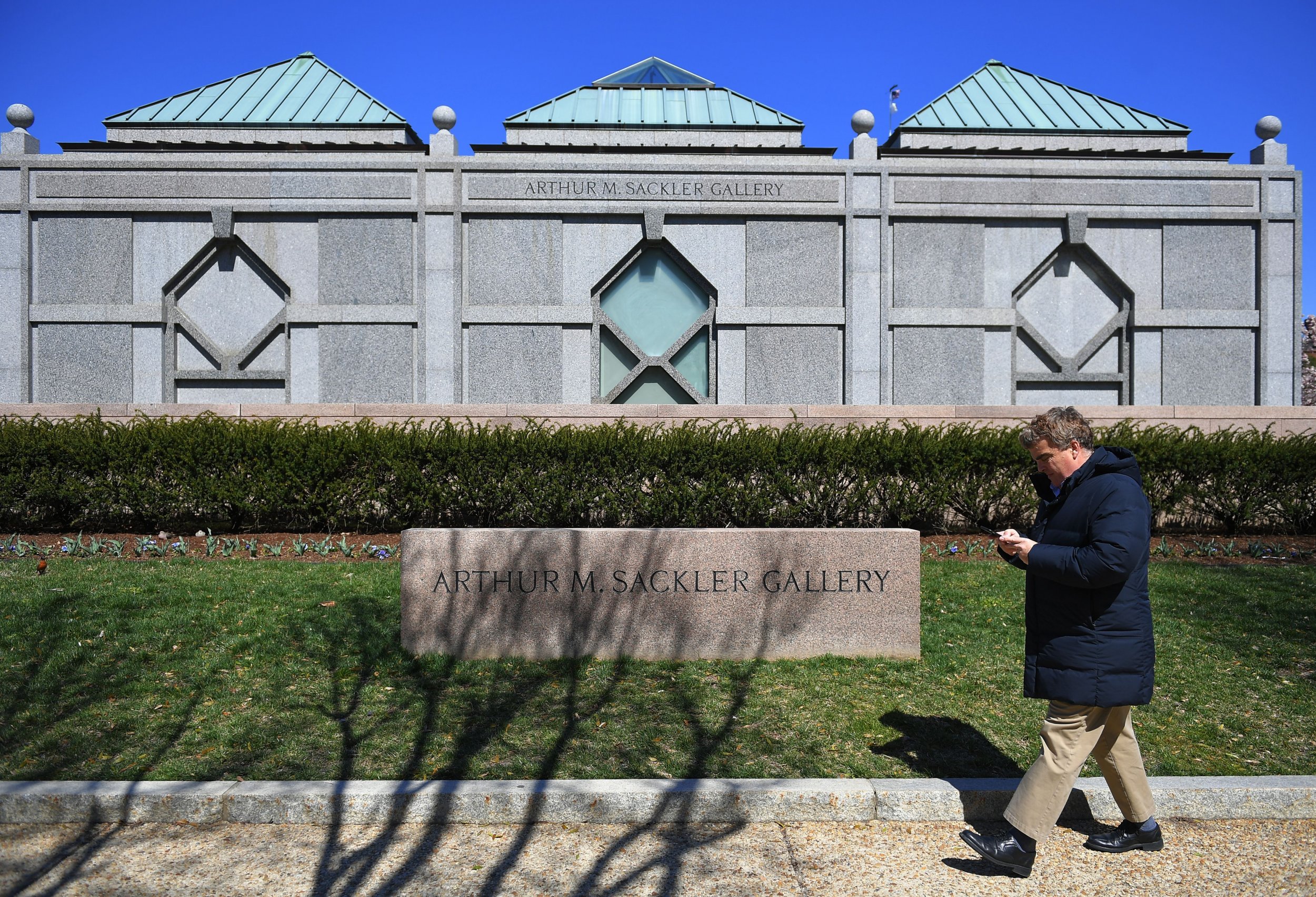
Purdue Pharma, the maker of OxyContin, announced on Tuesday the settlement of a case brought by Oklahoma for $270 million.
The settlement prompted legal scholars to speculate that other defendants in some of the 35 state cases brought against the company might settle, The New York Times reported. Some 1,600 suits have been filed against Purdue Pharma, whose drug OxyContin is at the center of the opioid crisis that is killing an average 130 Americans a day.
The lawsuits against Purdue have brought increased scrutiny to its operations and the family behind it, the Sacklers, who have amassed a fortune of $13 billion, according to Bloomberg. The company is accused of pushing doctors to prescribe OxyContin while simultaneously promoting an effort that misled the public about the medication's addictive qualities.
The Sacklers have become a widely recognized name and drawn criticism from public figures like comedian Samantha Bee, who hosts Full Frontal With Samantha Bee, and Bernie Sanders. The Vermont senator tweeted a video from Bee on Wednesday, writing, "The Sackler family has made billions of dollars selling opioids. Their greed, which is killing Americans, must end."
The Sackler family has made billions of dollars selling opioids. Their greed, which is killing Americans, must end. pic.twitter.com/IAWF4TZJ9z
— Bernie Sanders (@SenSanders) March 27, 2019
In a profile of the Sacklers publishedby The New Yorker in 2017, Patrick Radden Keefe detailed how the family built its wealth.
Three physician brothers—Arthur, Mortimer and Raymond—purchased Greenwich Village–based medicine company Purdue Frederick in 1952. Arthur died in 1987, Mortimer in 2010 and Raymond in 2017. (Mortimer's son, who is still alive, shares his name.)
Arthur died before OxyContin was invented, and one of his children, Elizabeth Sackler, has called profiteering from the drug "morally abhorrent." But much of rest of the family has gained wealth from the drug.
Last year, The Guardian reported that many Sackler family members were on the company's board. Three of Mortimer's children were members. Two of Raymond's children, Jonathan and Richard Sackler, and David Sackler, Raymond's grandson, were also listed as being on the board.
The intense focus on the Sacklers, its philanthropic donations and the way the family built its fortune have also focused attention on the philanthropy of wealthy families in the U.S. Critics have previously questioned the philanthropic spending of billionaires, regarding it as a reputation boost that can be used to distract public attention from possibly unethical practices that led to their wealth.
Speaking to BBC News, Andrew Kolodny, the co-director of the Opioid Policy Research Collaborative, called the Sacklers' philanthropic efforts "reputation laundering."
The Sackler family has long involved itself in philanthropic spending. The New Yorker article noted that the family gave Manhattan's Metropolitan Museum of Art $3.5 million in 1974. The museum's Sackler Wing bears the family name, as does a gallery at the Smithsonian Institution in Washington, D.C.
Amid the negative public attention, the recipients of the Sacklers' philanthropy have recently distanced themselves from the family. Earlier this month, London's National Portrait Gallery rejected a donation from the family, according to ABC News. Earlier this month, Manhattan's Guggenheim Museum and Britain's Tate art galleries said they would no longer accept gifts from the Sacklers.
On Monday, the Sackler Trust said that "the current press attention that these legal cases in the United States is generating has created immense pressure on the scientific, medical, educational and arts institutions here in the U.K.," The New York Times reported.

Newsweek reached out to consumer rights group Public Citizen for comment on how philanthropic donations can affect the public perception of families like the Sacklers, but did not immediately receive a response.
Uncommon Knowledge
Newsweek is committed to challenging conventional wisdom and finding connections in the search for common ground.
Newsweek is committed to challenging conventional wisdom and finding connections in the search for common ground.
About the writer
Daniel Moritz-Rabson is a breaking news reporter for Newsweek based in New York. Before joining Newsweek Daniel interned at PBS NewsHour ... Read more





